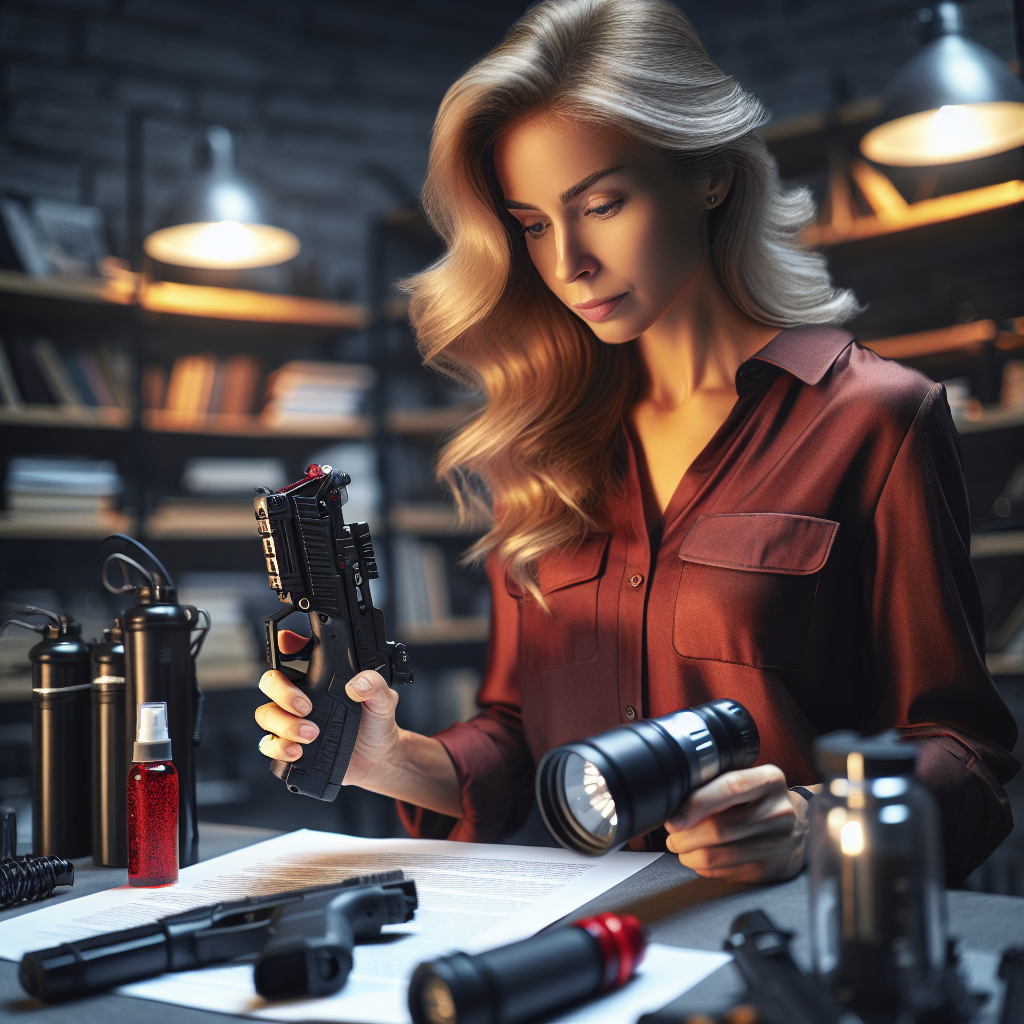Womens Self Defense
Non-lethal Weapons: How Laws Are Shaping Their Use

Non-lethal weapons have become an increasingly important topic in discussions about law enforcement and military tactics. These weapons are designed to incapacitate targets without causing permanent harm or death. While they can be useful in certain situations, their use raises ethical and legal questions that often vary between countries.
In the United States, non-lethal weapons like pepper spray, stun guns, and bean bag rounds are commonly used by law enforcement officers. However, the use of these tools is not without controversy. Critics argue that these weapons can still cause serious injuries or even death, especially if used improperly. In recent years, there have been calls for stricter regulations on the use of non-lethal weapons in police work.
Several high-profile cases of police brutality have brought this issue to the forefront. In response, some states have implemented laws that restrict the use of certain non-lethal weapons, such as tear gas or rubber bullets, in certain situations. Additionally, training programs for law enforcement officers have been updated to emphasize the importance of de-escalation techniques and proper use of non-lethal weapons.
Internationally, the use of non-lethal weapons is also governed by various laws and regulations. The United Nations has issued guidelines on the use of force, including non-lethal weapons, in peacekeeping missions. These guidelines stress the importance of proportionality and restraint when using force, and call for accountability and transparency in the use of non-lethal weapons.
In some countries, the use of non-lethal weapons is strictly regulated or even banned altogether. For example, the use of tear gas is prohibited in warfare under the Chemical Weapons Convention. Similarly, the use of pepper spray is prohibited in countries like Denmark and Norway, except in certain situations.
Overall, the use of non-lethal weapons is a complex issue that requires careful consideration of ethical and legal implications. While these weapons can be a valuable tool for law enforcement and military personnel, their use must be governed by clear guidelines and regulations to ensure the safety and well-being of all individuals involved. As laws continue to evolve in response to changing circumstances, it is essential that policymakers and law enforcement agencies stay informed and up-to-date on best practices for the use of non-lethal weapons.
Womens Self Defense
Women’s Self Defense Strikes : Self Defense Knee Breaks

A knee break in self defense is a great strike that will discourage the attacker from following you. Learn how to break an attacker’s …
source
Womens Self Defense
Protecting Your Rights: Legal Advice for Self-Defense Cases

If you find yourself facing a self-defense case, it is important to understand your rights and seek legal advice to protect yourself in court. Self-defense cases often involve complex legal issues, and having the right legal representation can make a significant difference in the outcome of your case.
One of the key elements in a self-defense case is establishing that you acted in reasonable self-defense. In order to successfully argue self-defense, you must show that you had a reasonable belief that you were in imminent danger of harm, and that your use of force was necessary to defend yourself against that harm. It is crucial to have a skilled attorney who can present evidence and witnesses to support your claim of self-defense.
In addition to proving self-defense, it is important to understand the laws in your jurisdiction regarding the use of force in self-defense situations. Different states have different laws regarding self-defense, including what level of force is considered reasonable and when force can be used to protect yourself or others. A knowledgeable attorney can help you navigate these legal complexities and ensure that your rights are protected.
When facing a self-defense case, it is also important to be mindful of your interactions with law enforcement and the legal system. It is crucial to remain calm and cooperate with law enforcement, but also to assert your rights and not make any statements that could be used against you in court. It is always best to consult with an attorney before speaking to law enforcement, as anything you say can be used as evidence in your case.
Finally, it is important to seek legal representation as soon as possible if you are facing a self-defense case. A skilled attorney can provide you with guidance and support throughout the legal process, and help you navigate the complexities of the criminal justice system. With the help of a knowledgeable attorney, you can protect your rights and ensure that you receive a fair trial.
In conclusion, facing a self-defense case can be a stressful and challenging experience. By seeking legal advice and representation, you can protect your rights and ensure that your side of the story is heard in court. Remember to assert your rights, cooperate with law enforcement, and seek the guidance of a skilled attorney to help you navigate the legal process and achieve the best possible outcome in your case.
Womens Self Defense
Empower Yourself Quick Self Defense Movements for Women #SelfDefense #WomenSafety #Empowerment #safe

Your safety is in YOUR hands! In just a few seconds, you can turn the tables on an attacker with simple yet powerful …
source
-

 Womens Self Defense9 months ago
Womens Self Defense9 months agoNew Legislation Empowers Women to Defend Themselves
-

 Self Defense News1 year ago
Self Defense News1 year agoShe was convicted of killing her abusive boyfriend. Now a Maple Grove woman is home awaiting a new trial.
-

 Self Defense News1 year ago
Self Defense News1 year agoSelf-Defense for All: The new Gracie Jiu-Jitsu Pasadena is for everyone | Online Features
-

 Womens Fitness1 year ago
Womens Fitness1 year agoXtreme Bodyweight HIIT (Lots of Jumping!) | Joanna Soh (Fio Series)
-

 Womens Self Defense1 year ago
Womens Self Defense1 year agoTop 5 Self-Defense Techniques Every Woman Should Know
-

 Womens Self Defense5 months ago
Womens Self Defense5 months agoUnderstanding State-by-State Variation in Self Defense Laws
-

 Womens Preparedness1 year ago
Womens Preparedness1 year ago10 essential skills for surviving in the great outdoors
-

 Self Defense News1 year ago
Self Defense News1 year agoBRPD offering free self-defense classes for women





